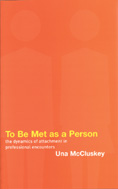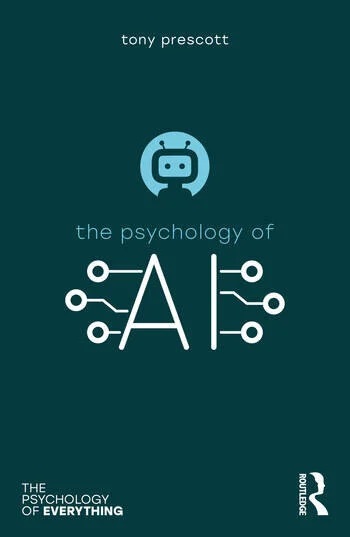Cognitive Analytic Therapy for Offenders: A New Approach to Forensic Psychotherapy

Book Details
- Publisher : Routledge
- Published : January 2006
- Cover : Hardback
- Pages : 368
- Category :
Forensic - Category 2 :
Cognitive-Behavioural Therapies - Catalogue No : 23123
- ISBN 13 : 9781583919248
- ISBN 10 : 1583919244
Also by Michael Gopfert
There are currently no reviews
Be the first to review
Cognitive analytic therapy (CAT) is an established form of integrated psychotherapy, which has been applied in a variety of clinical settings to a diversity of disorders with promising outcomes. In 'Cognitive Analytic Therapy for Offenders', the authors describe the application of CAT to forensic settings, illustrating the use of this type of therapy with a range of offence types and clinical disorders.
Reviews and Endorsements
CAT is presented as a new form of forensic psychotherapy which can enhance the understanding, conceptualisation, treatment and management of offenders. The book offers a novel description of clinical practice and describes the innovative application of cognitive analytic therapy to forensic work in a variety of contexts and settings for numerous offence types and clinical disorders, including:
* CAT in the treatment of child sex offenders in secure forensic settings
* The use of CAT with women in secure settings
* CAT for parents within prisons
* CAT for borderline and psychopathic personality disorder
* CAT for a stalking offender
* Community-based CAT with perpetrators of domestic violence
* CAT for homicide perpetrators (rage-type, serial sexual, dissociative homicides)
* The application of CAT for Court reporting and managing boundary violations
This book provides an account of a fresh, new approach to conceptualisation and treatment in forensic psychotherapy, and offers the first description of CAT presented in the form of a compilation of illustrations of practice. It will be essential reading for clinical psychologists and psychiatrists, occupational therapists, and anyone who works within services for offenders.
Contents:
Pollock, Preface. Pollock, Stowell-Smith, Cognitive Analytic Therapy: The Theory, Tools and Practice. Pollock, Illustrating Theory and Practice: Cognitive Analytic Therapy for an Arsonist with Borderline Personality Disorder. Stowell-Smith, States and Reciprocal Roles in the Wider Understanding of Forensic Mental Health. Stowell-Smith, O'Kane, Fairbanks, The Adjunctive Role of Cognitive Analytic Therapy in the Treatment of the Child Sex Offenders in Secure Forensic Settings. Pollock, Stifled Fantasies and the Stalker's Obsession: Cognitive Analytic Therapy for a Misguided Lover. Aitken, McDonnell, The Use of Cognitive Analytic Therapy with Women in Secure Settings. G�pfert, Cognitive Analytic Therapy and Parents in Prison. Clayton, The Learning Disabled Offender and the Secure Institution. G�pfert, Kerr, A CAT-informed Model of the Therapeutic Community: Implications for Work in Forensic Settings. Pollock, Cognitive Analytic Therapy of a Rapist with Psychopathic Personality Disorder. Bell, Hamill, Community-based Cognitive Analytic Therapy with Perpetrators of Domestic Violence: Challenges to the Orthodoxy. Pollock, Cognitive Analytic Therapy for Rage-type Homicide. Pollock, Stowell-Smith, Adam and Eve in the Forensic Eden: Boundary Violations in Forensic Practice. Pollock, Cognitive Analytic Therapy Analysis of the Errant Self and Serial Sexual Homicide: An Encounter with the Extremes of Human Conduct. Westacott, Cognitive Analytic Therapy for Dissociative Homicide. Pollock, The Contribution of Cognitive Analytic Therapy to Court Proceedings. Shannon, Willis, Potter, Fragile States and Fixed Identities: Using CAT to Understand Aggressive Men in Relational and Societal terms. Wyner, G�pfert (Editor�s commentary), In the Light of Experience. Pollock, Final Thoughts: The Way Forward for Cognitive Analytic Therapy in Forensic Settings. McGuire, An Invited Critique of Cognitive Analytic Therapy for Offenders.
Author Biography:
Philip H. Pollock is the Clinical Director of M. V. Psychology Consultancy, a private practice based in Belfast, Northern Ireland providing forensic psychological services world-wide to government agencies, prisons, secure hospitals and private organisations. He is a Consultant Forensic Clinical Psychologist, and author of two previous books on CAT.
Mark Stowell-Smith is a senior psychotherapist in the Wirral and West Cheshire Partnership NHS Trust and has previously worked in a high secure hospital. He is a CAT psychotherapist and trainer, having been involved with CAT from the late 1980s.
Michael G�pfert trained as a child psychiatrist at the Royal London Hospital and at the Clarke Institute of Psychiatry in Toronto. He is presently helping to develop therapeutic community services with Webb House in Crewe. One continuous focus of his work for over twenty years has been the area of mental illness and its effect on parenting, resulting in two books and several publications.
Full Contributors:
Gill Aitken, Calvin Bell, Philip Clayton, Arthur Fairbanks, Michael G�pfert, Justin Hamill, Ian B. Kerr, Kirsten McDonnell, James McGuire, Aisling O'Kane, Philip H. Pollock, Steve Potter, Karen Shannon, Mark Stowell-Smith, Mark Westacott, Abigail Willis, Ruth Wyner.
You may also like
To Be Met as a Person: The Dynamics of Attachment in Professional Encounters
Una McCluskey
Price £39.99








